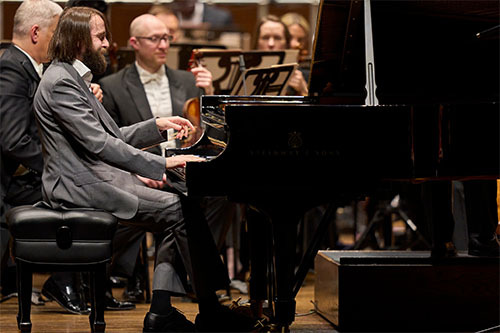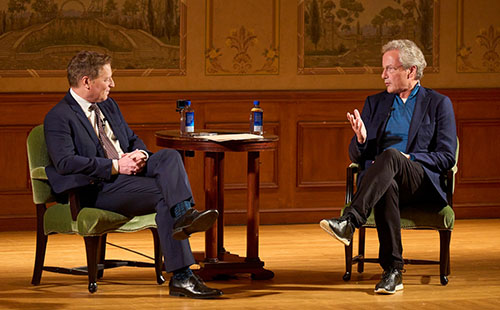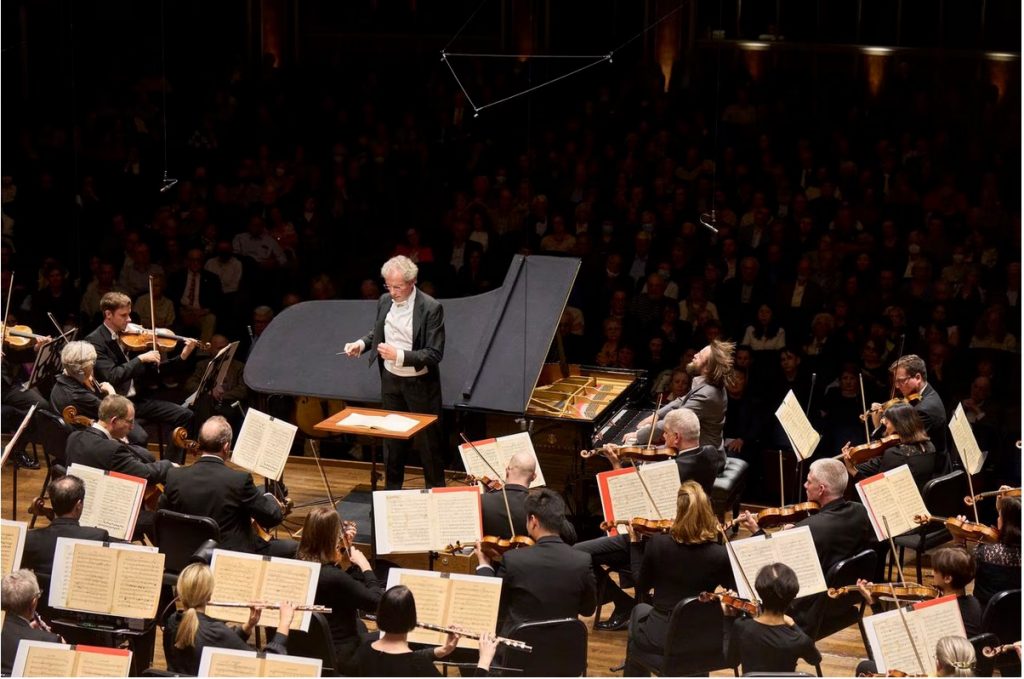This article was originally published on Cleveland.com (photos by Roger Mastroianni.)
By Daniel Hathaway
CLEVELAND, Ohio — The time-honored classical program format of three works was missing its overture at Severance Music Center on Thursday evening as Franz Welser-Möst led the Cleveland Orchestra in its official season opener. But a gargantuan German piano concerto and a stentorian Russian Symphony added up to a full evening overflowing with superlatives.
Not to mention the impressive pianistic pyrotechnics of international phenomenon and local hero Daniil Trifonov, or the enthralling sonorities created by the Cleveland Orchestra even when the material itself turned menacing.
Music never flowed easily from the pen of Johannes Brahms, especially when he took on larger forms, and his First Piano Concerto is an extreme example.
Originally conceived as a two-piano sonata, the piece took shape over a five-year period during which the composer repurposed its material as a symphony, then finally as a piano concerto of symphonic proportions.
The opening movement is as dramatic as the key of D-minor can be, but some awkwardness remains: the craggy opening theme — which nobody has ever left a concert hall whistling or humming — unfolds in an orchestral introduction, leaving the soloist with nothing to do for several long minutes.

The large, well-behaved audience sat on their hands for the two remaining movements — an Adagio love-song to Clara Schumann, the concerto’s dedicatee, and for the finale, a cheerful rondo rather shamelessly imitating the finale of Beethoven’s Third Concerto — then gave Trifonov and his colleagues a thundering ovation.
The soloist responded with a lovely performance of the Allemande from Jean-Philippe Rameau’s Suite in A.
The evening concluded with a memorable performance of Sergei Prokofiev’s Sixth Symphony, a post-World War II creation in only three movements that took a different tack from the composer’s earlier works. Lyrical in many places and as loud and brazen as a rock concert in others, the work makes its point in long melodic lines often supported by simple rhythmic gestures.
Much of the symphony sounds like cinematic traveling music — or maybe we should say that movie music can sound a lot like Prokofiev. Such passages as the opening brass snarls, the hyper-dissonant chords, and dramatic salvos from the percussion section are thrillingly foreign to the concert hall experience but were played with compelling brilliance by all sections of the orchestra. After all that, just when you expect the symphony to end with a bang, it suddenly takes its leave with an understated coda. Perhaps that was a bit of a joke on Prokofiev’s part. The audience hesitated — is it really over? — before breaking out in an enthusiastic ovation.

They chatted about Welser-Möst’s first encounter with Prokofiev’s music as a young violin student, the Cleveland Orchestra’s Prokofiev recording project, and the roles that recording played in his own learning process. He told about his career-changing car accident and how he used his entire insurance payment to purchase recordings.
The conductor discussed the orchestra’s Daniel R. Lewis Composer Fellowship and its success in identifying young talent who will go on to international careers. He said that he first heard current fellow Allison Loggins-Hull’s music when TCO’s principal flute Joshua Smith played it during a recital.
Welser-Most also talked about his interest in bringing opera to Severance. Asked why he selected Mozart’s Magic Flute to end this season, he said, “Why not?”
Published on ClevelandClassical.com September 30, 2023.
Click here for a printable copy of this article
Return to the Front Page.




